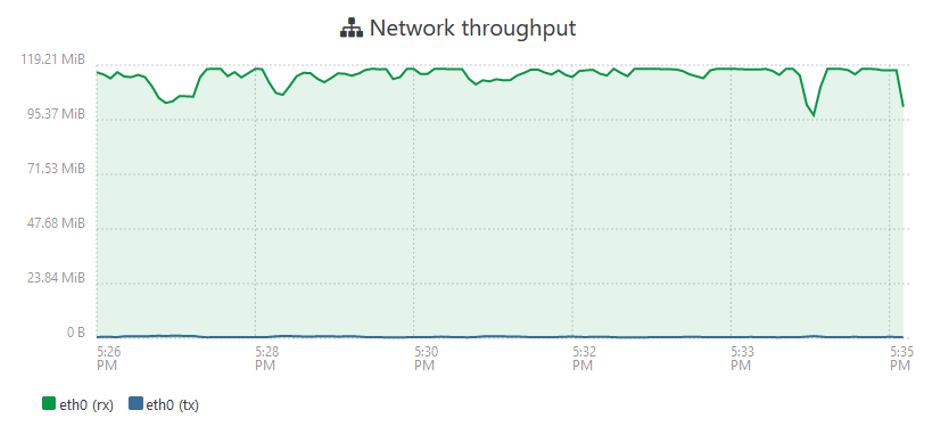When you miss 10G in your homelab
-
-
Yeah don't think I could live without 10G in my lab lol.
-
@wilsonqanda Thank you for sharing your positive experience with the Realtek 2.5G NIC. I am not sure if 2.5G is just a step in between on the way to 10G, which is why I hesitate to invest in 2.5G technology. But I would probably get away with less than €100 for two NICs and a cheap switch plus another NIC for the shared storage.
ServeTheHome has an interesting post on the HP Flex IO V2 10Gbase T Module, but they are far too expensive at 235€ atm.
-
@gskger Lol yea price wise it is just 10X more but another issue is that 10G is not going to help in the hp800 g6 or in my particular case g3 is too limited. But considering I am able to build everything and run the server under $45 with penny in electricity.
-
@gskger Yea the step in between is hard to justify. Esp. in my case since I have both 10G for my R720XD as well but these large servers are just too loud to be in the same room. lol
 . I end up not wanting to not hear these severs and reducing electrical cost.
. I end up not wanting to not hear these severs and reducing electrical cost.FYI I used the one I show and used an old credit card and drill two holes in the card mount the 2.5G and insert it right in the display port I used to have on the HP800g3 lol. Fit perfect and work like a charm.
-
@gskger XAPI may not get much above 2Gbps, so it is possible you would not get better performance with 10Gbps. Of course, that is looking at just raw bits-per-second, not factoring in all the other performance features on a real server class nic.
-
2.5G is too slow for shared storage IMO. You end up sharing half SATA SSD speeds across all VMs one the host. I'm thinking about trying some 10G USB-C adapters but even then I'm not sure I want to use shared storage.
-
@rjt Thats true. I once tested VDI host-to-host disk migration on an older low tech 10G setup (two Dell Optiplex 9010 with SSD and an Intel X520-DA1 NIC, Mikrotik CRS305-1G-4S+IN) and did not get much higher bandwidth. This may be faster with three simultaneous disk migrations.
-
@gskger Just wondering since we are on topic of storage and network. What would you guys do to make a website highly available?
My understanding is:
- Nginx or Apache to run frontend (doesn't change much) so XCP-ng can host these VMs pretty much static beside the changes to the database and the contents that is in the storage. So as long as there is a reverse proxy and load balancer it should be good.
- Database - (Mariadb with HA active-active enable) Change all the time and needs to be geo-replicated and believe MariaDB does this by itself.
- Storage - Ceph active-active sync. Maybe async work not sure... (Ceph storage best for this as it has active-active sync.)
Does that sound about right or i am missing too much detail?
-
@wilsonqanda Using HA adds more complexity (to XCP-ng and front-/backend systems). Your use case should really require HA to justify that complexity, especially if you add geo-replication to the mix. Most scenarios can probably be addressed with incremental replication for a low recovery point objectiv (RPO) and a good recovery time objective (RTO), but your mileage my vary.
Hello! It looks like you're interested in this conversation, but you don't have an account yet.
Getting fed up of having to scroll through the same posts each visit? When you register for an account, you'll always come back to exactly where you were before, and choose to be notified of new replies (either via email, or push notification). You'll also be able to save bookmarks and upvote posts to show your appreciation to other community members.
With your input, this post could be even better 💗
Register Login
